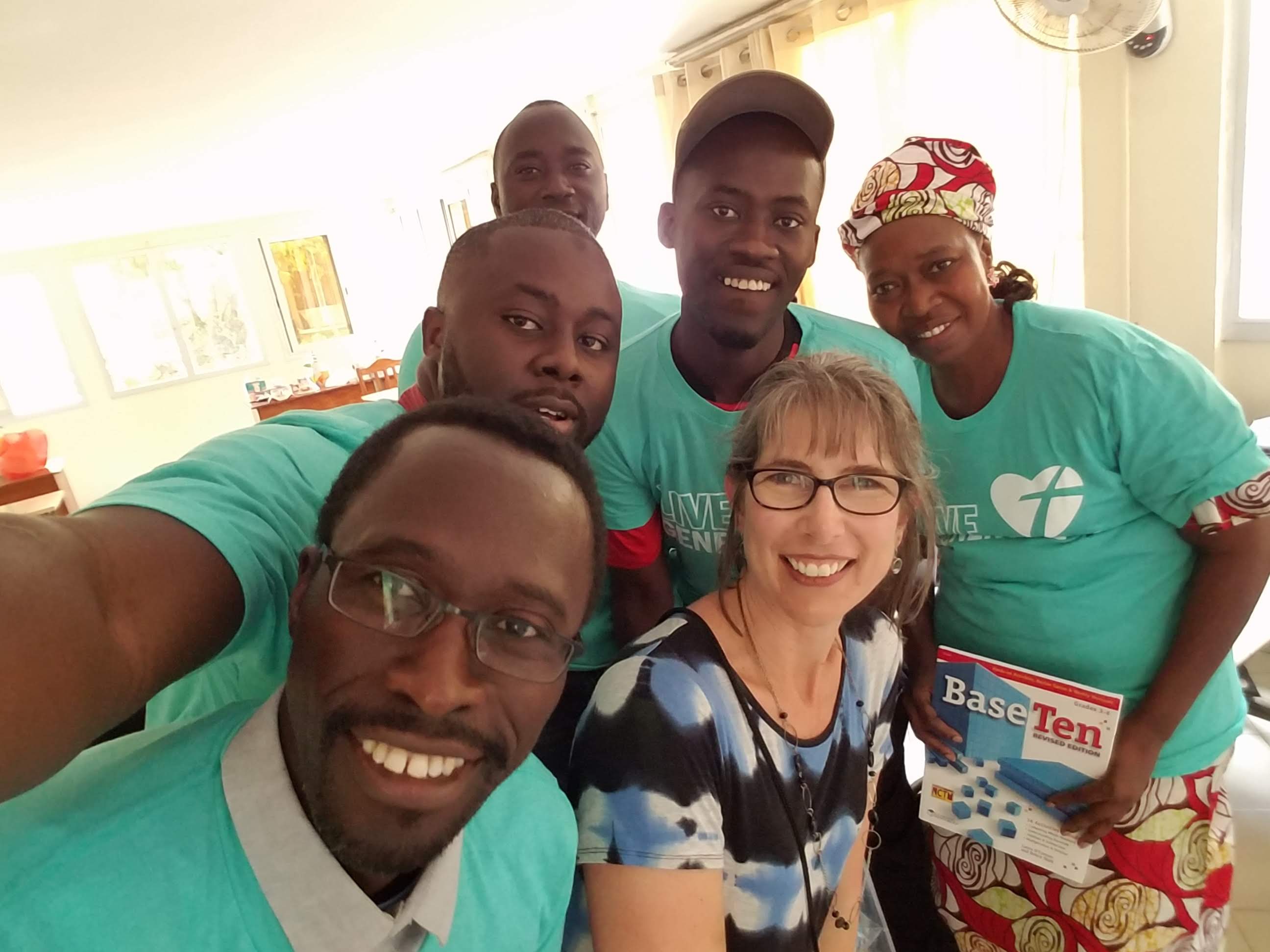
By Dr. Michelle Homp, CSMCE
In July of this past summer, I had the privilege of traveling to Africa to introduce the Primarily Math program to seven teachers from the Senegalese-American Bilingual School (SABS) in Dakar, Senegal. This experience was one component of the 2018 Afrimath Summer Program.
Headquartered in Dakar, Afrimath is an initiative designed to strengthen mathematics education in Senegal and all of Africa by engaging students and teachers in rich learning experiences that deepen their knowledge of mathematics and mathematics pedagogy.
Afrimath founder and director, Masake (Kane) Ly, is a Senegalese native who was a high school math teacher at SABS while she earned her MAT degree through UNL’s online degree program. It was through this program that I met Ly when, after serving as her online instructor for several courses, she asked me to be her advisor. Ly ended up a traveling to Nebraska to take one of our summer graduate courses, and we developed a friendship that led to our continued collaboration.
The 2018 Afrimath Summer Program consisted of a teacher program and a summer camp for middle school students and culminated in The Dakar Forum on Mathematics and Education. Ly provided the overall coordination for the program and led the summer camp while I led the professional development sessions for the teachers. Although only seven teachers from SABS participated, our plan is to train this group to become teacher leaders, who will, in turn, offer the Primarily Math experience to more elementary teachers in Dakar. It is my hope that I can return to Dakar to help make this happen.
I learned a lot about the people, the education system and the culture of Senegal. Something interesting about the school system is that while nearly all instruction is provided in French (which is the “official” language of Senegal), this is not the native language of the majority of the people. The language most commonly spoken in Senegalese homes is Wolof, and there are more than 30 other dialects spoken in other regions. Nearly every student attending school is a French language learner at the same time they are learning other subject matter, which certainly adds a layer of complexity to mathematics education in the elementary schools in Senegal.
It was interesting to see the similarities and differences between the traditional algorithms for the basic operations used in Senegal and those used in the U.S. We made it our goal, however, to understand the meaning behind all of the algorithms we encountered.
The welcoming and generous people of Senegal pride themselves on being known as “the country of teranga,” the Wolof term for hospitality. Everywhere I traveled people went out of their way to offer assistance or show me kindness. Their cultural traditions emphasize the importance of hospitality, both to guests and to fellow citizens. Each morning of the program, the students and teachers would gather for an opening warm-up session in an outdoor courtyard. Part of the daily routine was to clap and sing a traditional song that nearly everyone in Senegal would have learned as a child. The song was about having pride in your community, whether that community is as small as your class, or as large as your country and how extending hospitality within your community brings success and happiness to everyone.
The most generous act of all of which I was a recipient was being given a Senegalese name. It is traditional for guests to be given the last name of their host family, so my Senegalese surname already was “Kane” (pronounced kahn). To determine a first name the students and teachers met in a private meeting (I was not allowed to attend!) to collectively decide. When the selection was made I was ceremoniously led into the room and given the name “Maty” (pronounced mah’ tee). So I now answer both to Michelle and to Maty Kane. Nothing could have made me feel more welcome.
I wish to express my sincere thanks to the Joyce Brody Clark Outreach Fund and to the Center for Science, Mathematics & Computer Education for making this trip possible.
See more photos from the trip: https://go.unl.edu/nm_afrimath
To learn more about the Afrimath program, visit https://www.afrimath.org/copy-of-afrimath-summer-program